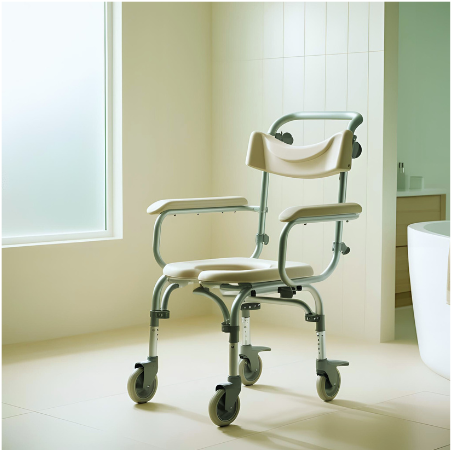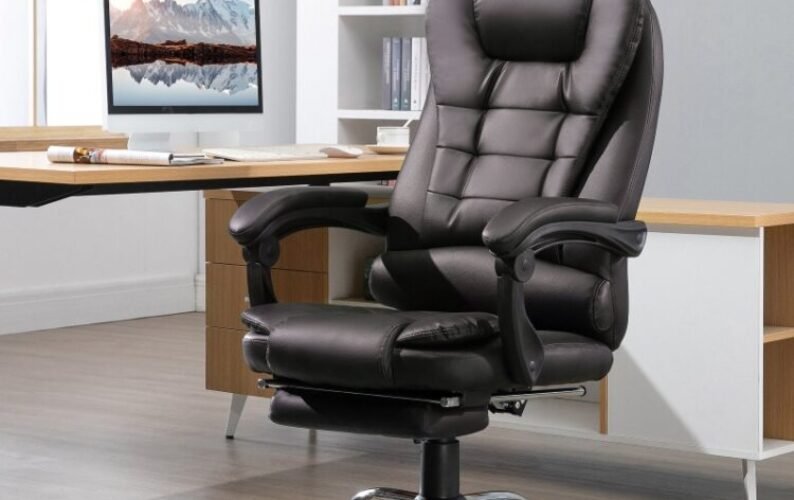Introduction to Shower Chairs
Shower chairs are specially designed seating devices that provide support and comfort to individuals who may struggle with standing while bathing. These chairs are invaluable for those with limited mobility, such as the elderly, individuals recovering from surgery, or anyone facing challenges due to injury or chronic health conditions. By offering a secure and stable area for sitting, shower chairs facilitate a safer bathing experience, thus promoting independence and confidence for users.
The primary purpose of a shower chair is to prevent slips and falls in the bathroom, which is often cited as a high-risk area for accidents, particularly for seniors and individuals with compromised movement. With a shower chair, users can remain seated while showering, allowing them to maintain personal hygiene without the stress of balancing on unstable footing. This not only enhances safety but also greatly improves overall comfort during the bathing process.
Over the years, the design and functionality of shower chairs have evolved significantly. Originally simple benches made of wood or other non-waterproof materials, modern shower chairs are constructed from lightweight, rust-resistant metals and plastics, ensuring durability and ease of maneuverability. Many contemporary models come equipped with adjustable heights, padded seats, and backrests for additional comfort. Furthermore, several designs now incorporate non-slip materials to provide added security against accidental slips.
As we consider the significance of shower chairs, it’s essential to recognize how they contribute not only to physical safety but also to a sense of dignity and autonomy among users. By allowing individuals to manage their bathing needs more independently, shower chairs serve as vital aids in promoting both comfort and confidence in daily routines.
Materials Used in Shower Chairs
The construction of shower chairs employs a variety of materials, each with its own set of advantages and disadvantages. Understanding these materials is crucial for selecting a chair that ensures comfort, safety, and convenience. The most common materials used in shower chair manufacturing include plastic, aluminum, and wood, each offering unique characteristics relevant to the intended use.
Plastic is a widely used material in shower chairs due to its lightweight nature and excellent water resistance. It is easy to clean, which is crucial for hygiene, and typically available in a range of colors and styles. Additionally, plastic is relatively affordable, making it a popular choice for budget-conscious consumers. However, one downside of plastic is its potential lack of durability compared to metal options, especially under heavy weight capacity or frequent use.
Aluminum, on the other hand, provides a sturdy and durable alternative. It is robust yet lightweight, making it easy to maneuver in the shower setting. Aluminum shower chairs often feature rust-resistant coatings, ensuring longevity even in wet conditions. While typically pricier than plastic models, their stability and weight capacity make them a preferred choice for those requiring more robust support. It should be noted that aluminum chairs can be more challenging to clean, particularly if they have intricate designs.
Lastly, wood is a traditional material that offers a warm aesthetic appeal. While it may provide an elegant look, wood is generally heavier and may not withstand moisture as effectively as plastic or aluminum. Regular maintenance, such as sealing or varnishing, is necessary to prevent water damage. Therefore, this material may be less suitable for frequent use in a wet environment where safety is a priority.
In conclusion, the choice of material for a shower chair is pivotal, and consumers should consider factors like durability, weight, ease of cleaning, and resistance to water. Understanding these materials will lead to informed decisions tailored to individual needs and preferences.
Who Can Benefit from a Shower Chair?
Shower chairs serve as a valuable aid for various demographic groups, each facing unique challenges that can impact their bathing experience. Elderly individuals frequently benefit from the use of shower chairs, as they typically encounter mobility issues or weaknesses that increase their risk of slips and falls in wet environments. The stability provided by a shower chair allows seniors to maintain their independence and confidence while bathing.
People with disabilities, whether due to physical or developmental conditions, also find shower chairs indispensable. These chairs are particularly useful for individuals with limited mobility or those who rely on mobility aids such as wheelchairs. The incorporation of a shower chair into their bathing routine can enhance accessibility and encourage self-care, which is essential for mental well-being.
Post-surgery patients, regardless of the type of procedure they have undergone, may require additional support when returning to regular activities such as bathing. Many surgeries can leave individuals with decreased strength or range of motion, making a shower chair a practical solution for ensuring safe and comfortable bathing experiences during recovery.
Caregivers, who often assist individuals with mobility challenges, also benefit significantly from the use of shower chairs. These aids not only reduce the physical strain involved in helping someone bathe but also provide a measure of safety that can alleviate the caregiver’s anxiety about accidental injuries. Additionally, shower chairs can instill a sense of dignity and autonomy for those receiving care, as they promote a greater level of independence.
Socially and psychologically, the ability to bathe independently can have profound effects on a person’s self-esteem and quality of life. It is essential to consider personalized selections of shower chairs based on user capabilities, size, and preferences to ensure the best experience possible. Ultimately, the various user demographics highlight the broad utility of shower chairs in promoting comfort, safety, and convenience.
Pros and Cons of Using Shower Chairs
Shower chairs are a valuable addition to bathrooms, especially for individuals with mobility challenges, seniors, or those recovering from surgery. The benefits of using shower chairs extend beyond mere convenience and can significantly enhance the user experience during personal hygiene routines.
One of the most notable advantages of shower chairs is the increased safety they provide. By offering a stable and secure place to sit, these chairs reduce the risk of slips and falls, which are common hazards in wet environments. Additionally, shower chairs promote independence, allowing users to maintain their personal hygiene without relying heavily on caregivers. This sense of autonomy is crucial for emotional well-being and fosters a more dignified experience.
Comfort is another important factor; many shower chairs are designed with padded seats and adjustable heights, catering to individual preferences. This level of comfort can transform the often awkward or uncomfortable task of showering into a more enjoyable one. Furthermore, shower chairs enhance accessibility, making it easier for individuals with varying degrees of mobility to enjoy their bathing routines.
On the hygiene front, shower chairs can encourage regular bathing practices by providing the necessary support for longer durations in the shower. This consistent routine can improve overall cleanliness and, consequently, health outcomes for users.
However, there are also drawbacks associated with shower chairs. One primary concern is their stability; users may worry about the chair tipping or sliding, particularly if not properly installed. Moreover, the weight capacity of some chairs may not accommodate all users. Maneuverability can also pose challenges; navigating tight spaces may be cumbersome, especially for wider designs. Lastly, regular maintenance and proper installation are essential to ensure safety, which can be seen as an additional burden for some.
This balanced overview of the pros and cons of shower chairs highlights the importance of considering individual needs when determining if a shower chair is a suitable choice.



